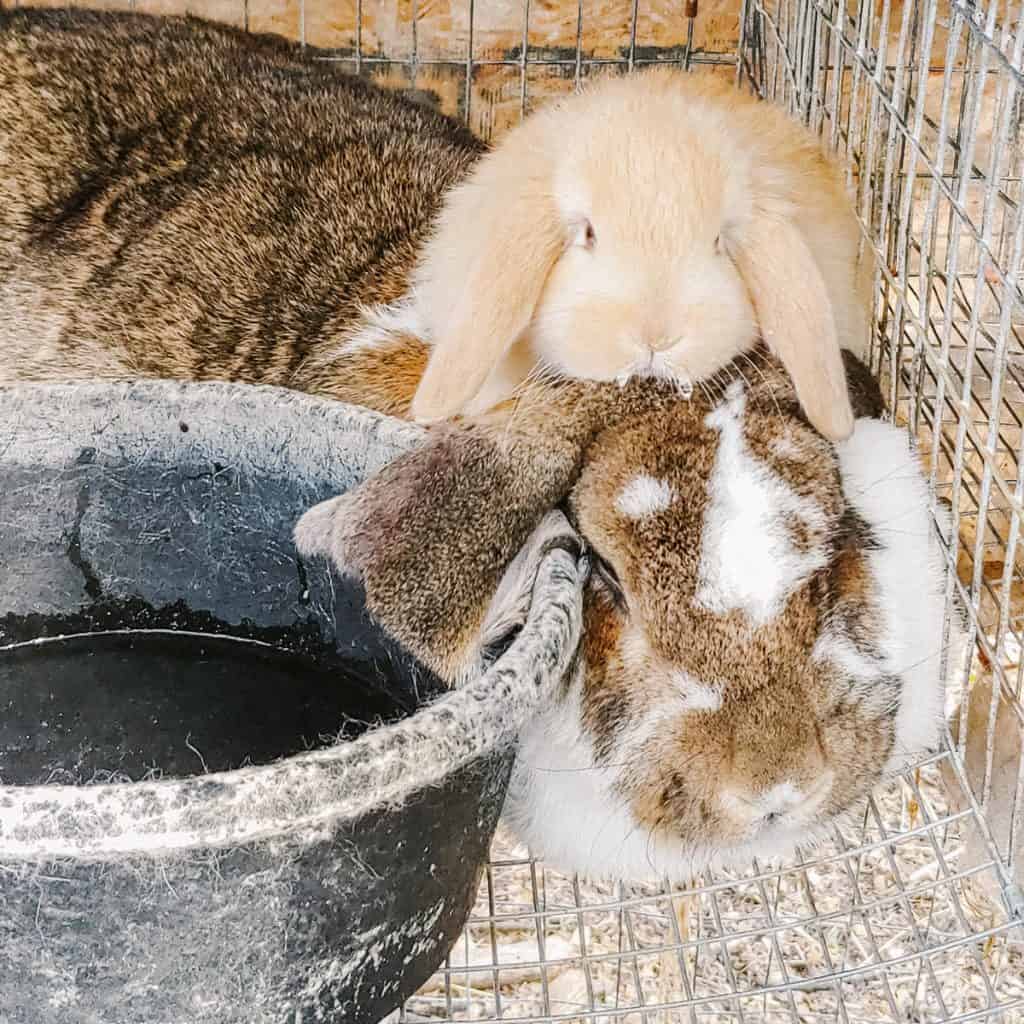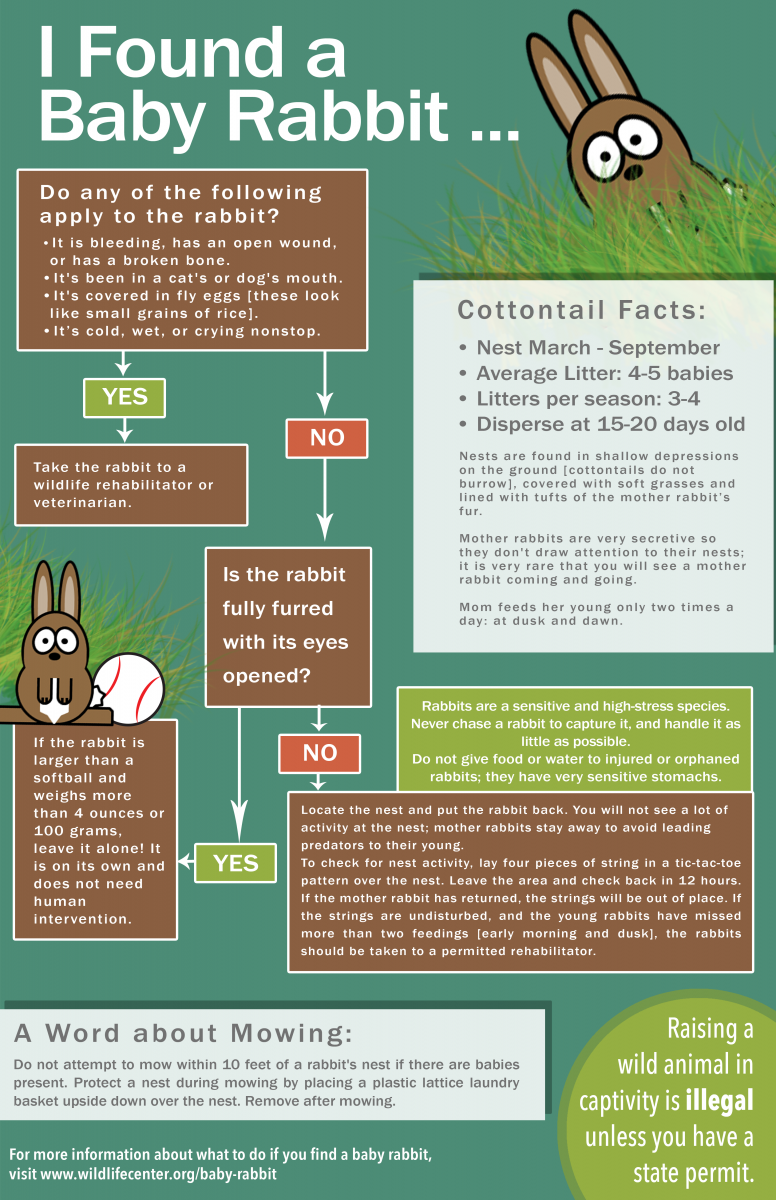When it comes to baby rabbit care, it’s important to ensure that your little bundle of joy is taken care of properly. Whether you are a first-time rabbit owner or an experienced one, this article will provide you with all the information you need to know about raising a healthy bunny. We will cover topics such as diet, housing, grooming, and medical care needs to give you the knowledge you need to ensure your bunny is happy and healthy. From learning when to introduce solid food to providing your bunny with playtime, this article will give you all the information you need for successful baby rabbit care.
Rabbit Feeding Babies

What Do Newborn Rabbits Look Like?
Newborn rabbits, or kits, are born blind and deaf. They are covered in fur and look like miniature versions of adult rabbits. The average litter size is between four and eight.
How Do Baby Bunnies Eat?
Baby bunnies are born without the ability to eat solid food. They need to be fed a special milk-replacement formula by their mother or a caretaker.
Nursing Baby Bunnies
The mother rabbit will typically nurse her babies until they are 4-5 weeks old. During this time, she will produce a special milk that is high in fat and protein to support the kits’ growth and development.
Feeding Newborn Rabbits
If the mother rabbit is unable to nurse her babies, then a caretaker will need to step in and feed the kits. This is done by using a special milk-replacement formula that is designed for baby rabbits.
How Much Do You Feed a Baby Rabbit?
Baby rabbits should be fed every two to three hours. The amount of milk-replacement formula that is given to the kits will depend on their size and age. Generally, a newborn kit will need a teaspoon of milk-replacement formula per feeding.
Baby Rabbit Feed
The milk-replacement formula used to feed baby rabbits should be specially formulated for rabbits. This formula should be high in fat and protein to support the kits’ growth and development.
How To Feed a Baby Rabbit Milk
To feed a baby rabbit milk-replacement formula, use a syringe or baby bottle. Fill the syringe or bottle with the milk-replacement formula and place it in the rabbit’s mouth. Gently squeeze the milk into the rabbit’s mouth and repeat until the desired amount is given. It is important to ensure that the milk-replacement formula is not too watery, as this can lead to aspiration pneumonia in the baby rabbit.
Baby rabbits require special care and attention to ensure that they grow up to be healthy and happy. By providing them with a diet of specially formulated milk-replacement formula and plenty of love, you can ensure that your baby rabbit will have a long and healthy life.
Baby Rabbit Care

Caring for Baby Rabbits
When caring for baby rabbits, it is important to provide them with the right environment and diet to ensure they stay healthy and happy. Baby rabbits need plenty of hay, fresh vegetables, water, and an appropriate sized cage to live in. It is also important to handle them with care and provide them with enrichment activities to keep them entertained and stimulated.
Caring for a Baby Rabbit
When caring for a baby rabbit, it is important to ensure they get enough food, water, and exercise. Baby rabbits should be fed hay and fresh vegetables every day and have access to fresh water at all times. They should also have a place to exercise and explore, such as a large cage or pen. Providing them with toys and other enrichment activities can also help keep them entertained and stimulated.
Taking Care of Baby Rabbits
When taking care of baby rabbits, it is important to provide them with a clean, comfortable living environment. This includes changing their cage or pen frequently and providing them with fresh hay and vegetables every day. It is also important to handle them with care and check them for any signs of illness or injury regularly.
Taking Care of Baby Rabbit
When taking care of a baby rabbit, it is important to provide them with a safe and comfortable environment. This includes making sure their cage is large enough for them to move around in and providing them with plenty of hay and fresh vegetables to eat. It is also important to check them for any signs of illness or injury regularly, and to handle them with care. Providing them with toys and other enrichment activities is also important to help keep them entertained and stimulated.
All About Rabbits
Do Baby Rabbits Nurse?
Baby rabbits nurse on their mother’s milk until they are weaned, usually by 8-10 weeks of age. Nursing is essential for a baby rabbit’s health and survival. It provides the necessary nutrition for growth and development.
How Long Do Baby Rabbits Nurse?
Baby rabbits typically nurse for 8-10 weeks before they are weaned. During this time, the mother rabbit provides her young with nourishment and protection. She will also groom them, teach them how to forage, and encourage them to explore their environment.
What To Do With a Baby Rabbit?
When you find a baby rabbit, the best thing to do is to leave it alone. The mother rabbit will take care of her babies and should be given the chance to do so. If you must intervene, make sure to take the baby to a wildlife rehabilitator as soon as possible.
Rabbit With Babies
If you find a rabbit with babies, make sure to observe from a distance. If the mother rabbit appears to be healthy and attentive, then leave them be. If the mother rabbit is absent or appears injured, then contact a wildlife rehabilitator for help.
Small Baby Rabbit
Small baby rabbits, or kits, should not be handled. They are very fragile and can easily be injured or killed. Newborn kits are also extremely vulnerable to predators, so it is important to keep them safe and not disturb them.
New Baby Bunnies
New baby bunnies should not be handled, as they can easily become stressed and overwhelmed. If you must intervene, make sure to consult a wildlife rehabilitator first.
Baby Bunny Rabbit
Baby bunny rabbits need to be kept warm and protected from predators. The mother rabbit will usually take care of this, but if she is absent, then make sure to provide the baby with a warm, safe environment.
One Week Old Bunnies
One-week-old bunnies can be handled with caution. They still need to be kept warm and away from predators, but they can be moved gently and given occasional human interaction.
One Week Old Rabbit
One-week-old rabbits can start to explore their environment, so make sure to provide them with plenty of toys, tunnels, and hiding spots.
Five Day Old Rabbit
Five-day-old rabbits can start to eat solid food, so make sure to provide them with fresh vegetables and hay. Make sure to monitor their diet to ensure they are getting the nutrition they need.
Frequently Asked Questions
What Age Should I Get a Baby Rabbit?
- The best time to get a baby rabbit is when it’s 8-10 weeks old.
- Baby rabbits should not be taken away from their mother before 8 weeks of age.
- Young rabbits can be very active and independent, so it’s best to get one when it’s old enough to be handled and cared for properly.
- Rabbits that are older than 10 weeks may become more territorial and more difficult to handle.
- Before buying a baby rabbit, make sure it is healthy and well-socialized.
- It is important to understand the responsibilities of owning a rabbit before bringing one home.
How Much Time Do I Need to Dedicate to Looking After a Baby Rabbit?
Daily Care
- Provide fresh food and water twice a day
- Clean the cage and litter box regularly to maintain proper hygiene
- Playtime: Spend time with your bunny every day, pet and interact with it, as well as providing toys and exercise
- Monitor its health: Look for signs of illness, such as changes in appetite, energy levels, and behaviour
Weekly Care
- Brush your bunny’s coat to keep it clean and free from mats
- Check its nails and trim them if needed
- Check its ears for signs of infection
Monthly Care
- Take your bunny to the vet for a check-up
- Check its teeth for any signs of overgrowth or misalignment
Yearly Care
- Have the vet perform a full physical examination and administer necessary vaccines
In conclusion, looking after a baby rabbit requires daily, weekly, monthly, and yearly care. To provide the best care, you should dedicate at least an hour a day to your bunny’s needs.
What Kind of Food Should I Feed My Baby Rabbit?
Baby rabbits should be fed a diet of hay, fresh vegetables, and a small amount of commercial feed pellets. Hay should make up the majority of their diet and should be available at all times. Fresh vegetables can be offered daily in small amounts. Feed pellets designed specifically for baby rabbits should be given in small amounts, no more than ¼ cup per day. Avoid giving treats or sugary snacks.
How often should I clean the cage of my baby rabbit?
Your baby rabbit’s cage should be cleaned at least every two weeks to keep the environment sanitary and hygienic. When cleaning the cage, be sure to use a mild detergent and warm water to wipe down the walls, floor, and objects inside. You should also change out the bedding, replace any soiled food dishes, and replace the water. These steps will help keep your baby rabbit healthy and happy.
Is it Safe to Handle My Baby Rabbit?
Handling baby rabbits requires extra care and caution. Baby rabbits are very fragile, and improper handling can cause serious injury. It is important to remember to always support the baby rabbit’s back and stomach while picking it up. When you do pick up the baby rabbit, be sure to keep it close to your body and move slowly. Speak calmly and softly when handling a baby rabbit as loud noises and sudden movements can scare them.
Once the baby rabbit is comfortable with being held, you can start to pet it and gently stroke its fur. Rabbits can be trained to enjoy being handled, so be sure to be patient and gentle. Additionally, it is important to provide the baby rabbit with a safe space to explore. Once the baby rabbit is comfortable enough with its environment, you can start to handle it more often.
Conclusion
Raising a healthy baby rabbit is a rewarding experience that requires plenty of patience and dedication. To ensure a positive outcome, it is important to provide your bunny with quality nutrition, safe and comfortable housing, and access to regular veterinary care. In addition, it is essential to monitor your pet’s health, socialize and handle your pet regularly, and provide plenty of enrichment activities to keep your bunny healthy and happy. With proper care and attention, a baby rabbit can be a wonderful and loyal companion for many years.
